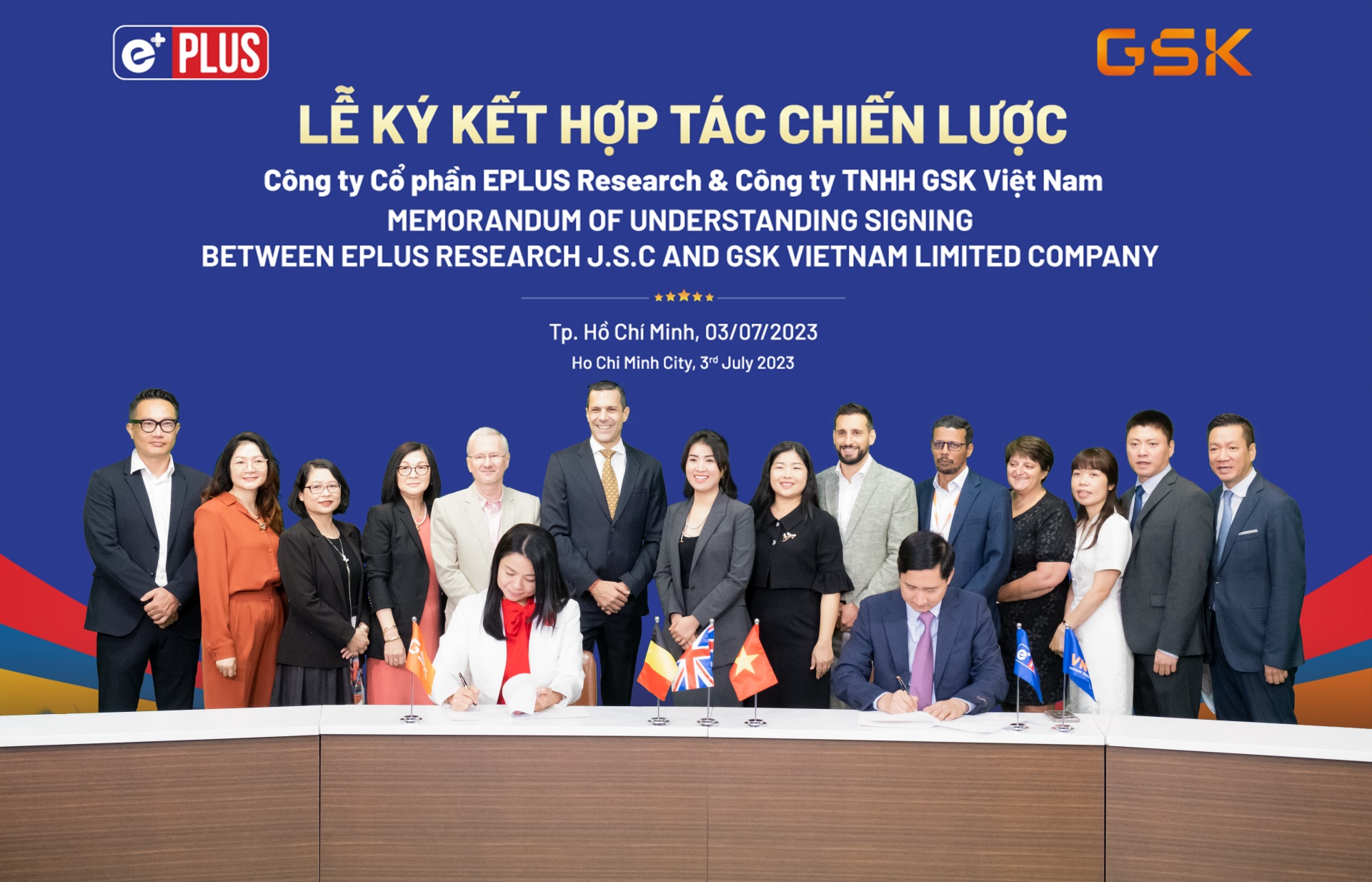GSK: from treatment to prevention for healthy ageing
How do you assess emerging health concerns both globally and in Vietnam recently?
One of the most important healthcare challenges today is the rise in the ageing population. Globally, by 2050, it’s estimated that there will be around 2.1 billion people aged 60 and older. In Vietnam, the population is ageing rapidly, with nearly 36 per cent expected to be over 50 by 2035.
 |
| Dr. Pham Thi My Lien, president of GSK Vietnam |
In 2022, Vietnam had over 23 million people aged 50 and above, making up 21 per cent of the total population. As people age, they experience a gradual decline of the immune system, known as immunosenescence which makes them more susceptible to infectious diseases, cancer, cardiovascular conditions, and neurological disorders. Older adults are particularly vulnerable to severe viral and bacterial infections such as influenza, respiratory syncytial virus (RSV), shingles, and pneumococcal disease, which can lead to both immediate and long-term health complications. This growing burden puts significant pressure on the healthcare system, increasing treatment costs and hospitalisation rates.
For example, in the United States, up to $9 billion is spent annually on vaccine-preventable diseases, with 95 per cent of this attributed to direct medical costs, and 79 per cent due to diseases in unvaccinated adults. The economic and social burden of vaccine-preventable diseases in adults aged 50 and above is expected to rise significantly over the next 30 years.
Beyond the burden on the healthcare system, what are your thoughts on the impact on the elderly themselves?
I believe that everyone wants to age naturally and healthily. Many elderly people express a strong desire to avoid becoming a burden on their children or relatives. However, while maintaining good health is a major concern as people age, it’s common for them to deny potential health risks or overlook the warning signs.
In modern society, we’ve become more conscious of taking care of our health through regular exercise, balanced diets, and avoiding smoking. As sci-tech continues to advance, older adults will have more opportunities to proactively prevent diseases, helping them achieve what we call "healthy ageing."
Why is adult vaccination considered one of the key solutions for building a sustainable society?
The "silver economy" focuses on improving the quality of life for older adults, including healthcare and disease prevention. Key infectious diseases affecting older adults include shingles, hepatitis B, pneumococcal disease, influenza, diphtheria, whooping cough, and RSV.
Shingles is a prime example, as it has a high incidence in people over 50. More than 90 per cent of this age group carry the chickenpox virus, making them at risk of developing shingles. For some, shingles can lead to severe, long-term complications, particularly for those with underlying health conditions. By focusing on prevention, we can reduce the risk of these severe outcomes.
Moreover, diseases such as measles, whooping cough, and diphtheria have resurfaced in adults in Vietnam, underscoring the importance of immunisation not only for children but also for adults and the elderly.
What strategies are developed countries adopting to address healthcare challenges of ageing populations?
COVID-19, influenza, shingles, and RSV are common infectious diseases in countries with ageing populations. These illnesses increase hospitalisation rates and can lead to long-term poor health. For example, RSV is a widespread respiratory virus that can cause lower respiratory tract infections, pneumonia, and even death. It places a significant burden on people over 65, with the risk of severe complications increasing with age.
Many developed countries are years ahead in offering comprehensive healthcare for the elderly, including strategies to reduce vaccine-preventable diseases. Shingles vaccination, for instance, is recommended by international health organisations, and many nations have included it in their national immunisation programmes.
I hope Vietnam can quickly catch up and move towards a decade of healthy ageing. With increased awareness of disease prevention, we can all contribute to a healthier society.
How do you think sci-tech will shape the future of healthcare?
At GSK, we believe prevention is the most effective strategy. That’s why we unite science, technology, and talent to get ahead of disease together. GSK has built one of the world’s largest vaccine portfolios to help protect people from infectious diseases at every stage of their lives, including the elderly.
The best approach to healthcare, especially with an ageing population, is prevention. We hope medical organisations will continue to develop guidelines for adult immunisation, particularly for those with underlying health conditions. Vaccination programmes will play a crucial role in improving quality of life and providing holistic protection for public health in the future.
NP-VN-ABX-PRSR-240003; ADD: 09/2024
 | The UK continues celebrating successes in healthcare sector in Vietnam The UK Prime Minister’s Trade Envoy to Vietnam, Mark Garnier, on March 15 visited GSK's warehouse in Ho Chi Minh City during his first official visit to the Southeast Asian nation. |
 | GSK Vietnam and EPLUS partner to increase access to new vaccines GSK Vietnam and EPLUS Research JSC signed an MoU for a strategic partnership on July 3 to bring new medicines and vaccines to Vietnam and help people access the world's innovative healthcare solutions. |
 | COPD treatment is of utmost importance Professor Paul Jones, emeritus professor of Respiratory Medicine at St George’s University of London, shared his perspectives with VIR’s Bich Thuy on chronic obstructive pulmonary disease (COPD) and a new breakthrough solution to help reduce the burden on patients and the healthcare sector in Vietnam. |
What the stars mean:
★ Poor ★ ★ Promising ★★★ Good ★★★★ Very good ★★★★★ Exceptional
Themes: Healthcare Platform
- PM outlines new tasks for healthcare sector
- Opella and Long Chau join forces to enhance digestive and bone health
- Hanoi intensifies airport monitoring amid Nipah disease risks
- Cosmetics rules set for overhaul under draft decree
- Policy obstacles being addressed in drug licensing and renewal
Related Contents
Latest News
More News
- Digital shift reshaping Vietnam’s real estate brokerages (December 31, 2025 | 18:54)
- Allen & Gledhill recognised as Outstanding M&A Advisory Firm (December 18, 2025 | 14:19)
- Inside Lego Manufacturing Vietnam (December 18, 2025 | 11:45)
- The next leap in Cloud AI (December 11, 2025 | 18:19)
- Vietnam’s telecom industry: the next stage of growth (December 11, 2025 | 18:18)
- Five tech predictions for 2026 and beyond: new era of AI (December 11, 2025 | 18:16)
- CONINCO announces new chairman and CEO (December 10, 2025 | 11:00)
- How AWS is powering the next-gen data era (December 09, 2025 | 13:14)
- Outlook in M&A solid for Singapore (December 08, 2025 | 10:31)
- Vietnamese firms are resetting their strategy for global markets (December 05, 2025 | 17:04)

 Tag:
Tag:
























 Mobile Version
Mobile Version